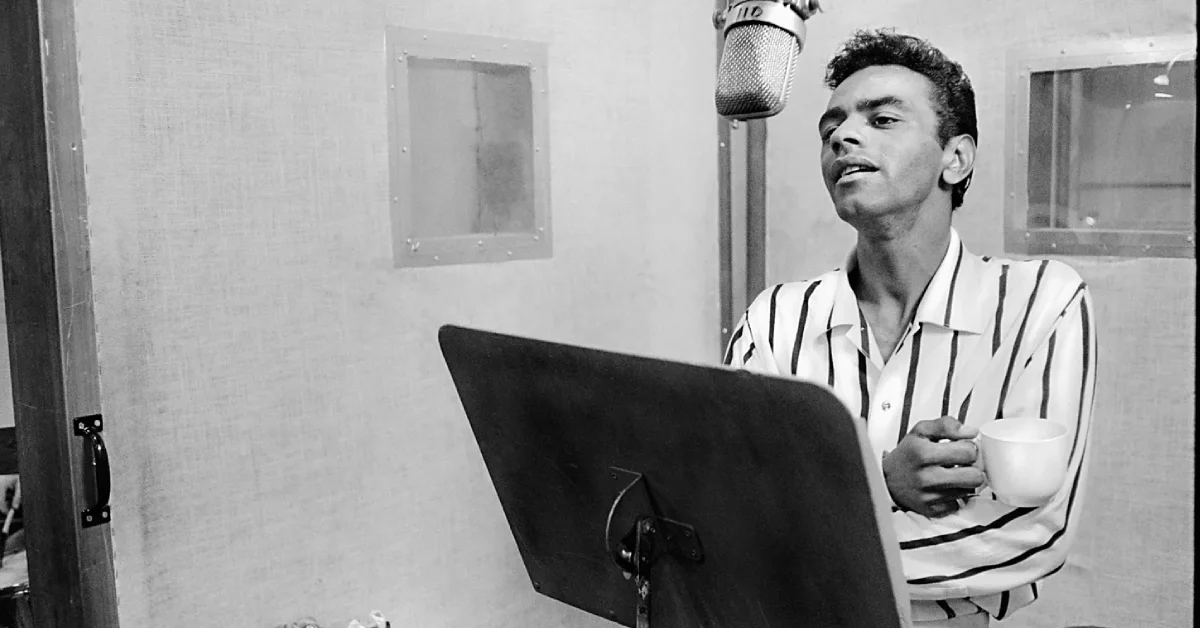Johnny Mathis has charmed audiences with his smooth vocals for over seven decades. Now, as the legendary “Voice of Romance” announces his retirement in 2025, many fans want to know: what is Johnny Mathis worth after such an extraordinary career?
Johnny Mathis Net Worth
Johnny Mathis has amassed an estimated net worth of $200 million through his remarkable 70-year music career. This figure puts him among the wealthiest musicians of his era, though estimates vary between $200-400 million depending on the source.
Why such a wide range? Financial publications often have limited access to celebrities’ private investment portfolios and real estate holdings. Most reliable sources, including Celebrity Net Worth, place his fortune closer to the $200 million mark as of 2025.
When compared to contemporaries like Tony Bennett (who had a net worth of approximately $150 million) and Andy Williams (around $45 million at the time of his passing), Mathis stands out as one of the most financially successful vocalists of his generation.
Early Life
Born in 1935 to parents Clem and Mildred Mathis in Gilmer, Texas, Johnny grew up in modest circumstances. His father, who worked multiple jobs to support seven children, recognized Johnny’s musical talent early and traded household services for voice lessons.
Before music became his path, Johnny showed remarkable athletic promise. As a high jumper at San Francisco State College, he was invited to try out for the 1956 Olympics. At this pivotal moment, Columbia Records called with a recording opportunity in New York. Johnny chose music over athletics—a decision that would eventually build his $200 million empire.
His first recording contract with Columbia Records offered minimal upfront money. Like many artists of that era, the initial payments were small, but the relationship with Columbia would span decades and become the foundation of his wealth.
Career
Mathis’s breakthrough came in 1957 with hits like “Wonderful! Wonderful!” and “It’s Not for Me to Say.” These songs launched him to stardom, but his financial turning point arrived when his album “Johnny’s Greatest Hits” spent an unprecedented 490 continuous weeks (nearly nine and a half years) on the Billboard album chart. This 1958 release pioneered the concept of the greatest hits album in the music industry.
His holiday album “Merry Christmas” became one of the most commercially successful Christmas albums ever released. Since its 1958 debut, it has sold over 5 million copies and continues to generate revenue during each holiday season—a recurring income stream spanning six decades.
Throughout his career, Johnny received multiple Grammy nominations and was inducted into the Grammy Hall of Fame. While he never won a competitive Grammy, these recognitions boosted his marketability and concert drawing power, significantly impacting his earning potential.
Record-Breaking Sales
Album sales form the foundation of Mathis’s fortune. With over 360 million records sold worldwide, Mathis ranks among the top-selling artists in music history. His 73 albums that made Billboard charts show a consistency few performers have matched.
Specific sales milestones include:
- “Johnny’s Greatest Hits” sold over 3 million copies
- “Merry Christmas” exceeded 5 million copies
- “Chances Are” sold over 2 million singles
As streaming transformed the music industry, Mathis’s catalog maintained its value. His timeless recordings of standards and romantic ballads continue generating royalties from services like Spotify, Apple Music, and Pandora, adding to his wealth even as physical album sales declined industry-wide.
Columbia Records, recognizing Mathis’s consistent sales power, rewarded him with increasingly favorable royalty arrangements throughout his career. While early contracts gave artists only pennies per album, his negotiating position strengthened as his commercial success grew, allowing for better royalty percentages on later releases.
Mathis wisely expanded beyond album sales to build his wealth. Concert tours became a major revenue source, with Mathis performing up to 200 nights annually during his peak years. Even in his 80s, before announcing retirement, he maintained a touring schedule of 30-50 dates yearly, with ticket prices ranging from $75 to $250.
Television specials and appearances added another income stream. His 1978 “Mathis Magic” CBS special and numerous appearances on variety shows like “The Tonight Show” supplemented his income while promoting album sales.
Unlike many artists who heavily marketed merchandise, Mathis took a more selective approach. While he sold memorabilia at concerts, he focused primarily on his music rather than developing extensive merchandise lines. This strategy preserved his image as a sophisticated vocalist rather than a commercial brand.
Real Estate Investments
Smart real estate investments significantly contributed to Mathis’s wealth. His most notable property purchases include:
- A Manhattan apartment building acquired in the 1960s when New York real estate was more affordable
- His longtime Hollywood Hills home, purchased in 1964 for approximately $100,000, now valued at several million dollars despite suffering damage in a 2015 fire
- Commercial properties including a Midwest post office building that provided steady rental income
Mathis approached real estate as a stable investment rather than speculative ventures. His strategy focused on long-term appreciation and reliable income generation rather than risky property flipping or development.
The Hollywood Hills home serves both as his primary residence and a valuable asset. Even after the 2015 fire damaged parts of the property, its location in one of Los Angeles’ most desirable neighborhoods ensures its continued value appreciation.
According to music industry analysts, Mathis largely avoided the stock market’s volatility, preferring real estate and other physical investments. This strategy aligned with his personality—calm, steady, and focused on long-term security rather than get-rich-quick schemes.
This cautious approach meant he might have missed some high-return opportunities, but it also protected him from the financial collapses that plagued many of his contemporaries. His disciplined financial management stands in stark contrast to performers who earned millions but later faced bankruptcy.
Expenses, Setbacks, and Challenges
Despite his wealth, Mathis faced financial challenges throughout his career. The most publicized setback came in November 2015 when a fire severely damaged his Hollywood Hills home, destroying memorabilia and personal belongings accumulated over decades.
Like all touring performers, Mathis incurred substantial expenses maintaining his career. Travel costs, supporting musicians, wardrobe, and staff salaries reduced his gross earnings. During peak touring years, overhead costs could reach millions annually.
Tax obligations also impacted his wealth accumulation. Performing during eras with top marginal tax rates exceeding 70%, Mathis, like many high earners of his generation, saw a significant portion of his income directed to federal and state taxes.
Despite these challenges, Mathis’s steady income from multiple sources allowed him to maintain financial stability throughout his career without the dramatic bankruptcies or financial crises that affected many of his peers.
Net Worth Growth Timeline
Mathis’s wealth accumulated gradually rather than through sudden windfalls:
- 1950s: Early career earnings provided modest income. Album sales began building, but royalty rates favored record companies over artists.
- 1960s-1970s: Peak commercial success established financial security. Concert fees increased substantially as his reputation grew. Real estate investments during this period laid the groundwork for long-term wealth.
- 1980s-1990s: While new releases received less radio play, his back catalog continued generating royalties. His holiday recordings became perennial sellers, creating consistent annual income spikes.
- 2000s-2010s: Legacy status brought renewed interest in his work. Digital distribution opened new revenue channels for his extensive catalog. Concert performances remained profitable with loyal audiences willing to pay premium prices.
- 2020s: Approaching retirement, focus shifted to wealth preservation and legacy planning. Streaming royalties continue generating passive income even as active performing decreases.
Legacy

With his 2025 retirement announcement, Mathis enters a new financial phase. While concert revenue will end, his wealth will continue generating returns through:
- Ongoing royalties from his extensive catalog
- Appreciation of real estate holdings
- Interest and dividends from investments
- Potential licensing opportunities for his music in films, commercials, and other media
Estate planning has likely become a priority, though Mathis has been private about these arrangements. Music industry experts suggest his catalog rights alone could be worth tens of millions, creating complex succession planning considerations.
Throughout interviews, Mathis has shared glimpses of his financial philosophy. “I’ve always tried to be conservative,” he once remarked when discussing investments. This modest approach characterized both his public persona and private financial decisions.
Unlike contemporaries who pursued extravagant lifestyles, Mathis maintained relative simplicity despite his wealth. His Hollywood Hills home, while valuable, is modest compared to the sprawling estates of many celebrities with comparable net worth.
His seven-decade relationship with Columbia Records shows another aspect of his financial acumen—relationship stability. While many artists frequently changed labels seeking better deals, Mathis recognized the value of institutional knowledge and established pipelines for his work.
This long-term thinking extends to his charitable giving. Though he maintains privacy around his philanthropy, he has supported causes including music education and AIDS research. His approach to giving, like his career management, appears strategic rather than impulsive.
Final Words
What can we learn from Johnny Mathis’s journey to a $200 million net worth?
First, consistency matters more than spectacular peaks. While never achieving the headline-grabbing paydays of some modern artists, his steady output over seven decades created substantial cumulative wealth.
Second, diversification provided stability. By generating income through album sales, concerts, television appearances, and investments, Mathis protected himself from industry-specific downturns.
Third, relationship longevity created financial advantages. His unprecedented 70-year relationship with Columbia Records and decades-long partnership with his business manager provided continuity rarely seen in entertainment.
Finally, Mathis demonstrates how artistic integrity can align with financial success. By focusing on musical quality rather than chasing trends, he built a catalog with enduring appeal and continuing earning power.
As Johnny Mathis enters retirement with a $200 million fortune, his financial journey offers valuable lessons about sustainable wealth building in an industry notorious for financial extremes. His legacy includes not just musical achievements but also a model of prudent financial management worthy of study by today’s performers.
